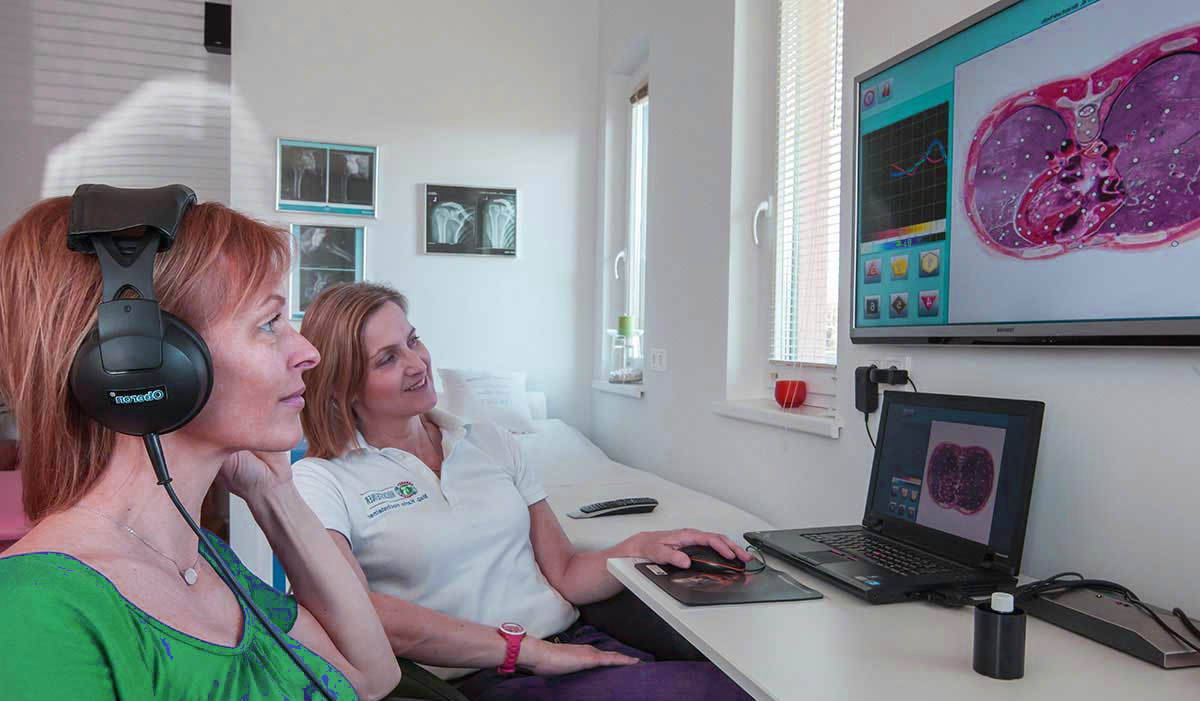Diagnostic
Intestines and stress: colon irrigation

Experiencing stress is not unusual in recent times. We continuously face demanding situations that require too much from us. As a consequence of fear, the state of the intestine worsens, leading to changes and problems in the body as a whole. Colonic irrigation can normalise the functionality of the gastrointestinal tract and improve the quality of life.
For many centuries, people have known about the influence of emotions on the functionality of the gastrointestinal tract. Feelings of having “butterflies” in the stomach, “agonising torments,” nauseating sensations, and abdominal pains during or after emotional stress are some visible signs proving the point. In recent decades, there has been an increase in recognition of the role of the bidirectional interaction between the brain and intestines in bowel diseases.
These interactions occur through the neuronal pathways through the efferent and afferent components of the parasympathetic and sympathetic nervous systems, including the hypothalamic-pituitary-adrenal axis, parts of the immune system, and microbiota. Recent studies have also revealed the relationship between the nervous system and the functionality of the gastrointestinal tract. For more than fourteen years, experts in our clinic have successfully treated the adverse effects of stress on the intestines with colon irrigation. Several experts experienced in other areas will offer a range of different health recovery services.
Colonic irrigation helps to restore the body.
It has been suggested that between chronic stress and irritable bowel syndrome, the person develops a bad relationship with the participation of CRH, which can be ruptured with the help of its antagonists.
With constant stress, the organs of the gastrointestinal tract can manifest themselves in the form of the following symptoms:
- the feeling of emptiness in the stomach or, conversely, of its overflow (feeling of rapid saturation);
- pain in the abdomen or other areas of the abdominal cavity;
- bitterness or acid in the mouth;
- change in appetite;
- heartburn;
- weakness, general malaise, insomnia;
- spasms of the oesophagus;
- nausea;
- constipation or diarrhoea.
All of this causes inflammation of the stomach’s mucous membrane and the appearance of ulcers and wounds. It also leads to irritable bowel syndrome.
Firstly, it should be noted that the bulk of serotonin (often called the hormone of happiness, although it is the brain’s neurotransmitter) is concentrated in the intestine.
Serotonin plays a vital role in regulating motor and gastrointestinal tract secretion. With dysbacteriosis and some other colon diseases, the intestine’s production of serotonin is significantly reduced, which worsens the person’s mood.
Conversely, with depression, anxiety disorder, and somatoform autonomic dysfunction through the autonomic nervous system, the innervation of the gastrointestinal tract can change, which will violate its functions and may lead to a decrease in the production of serotonin, which will also affect the mood (can form a so-called vicious circle).
Our London clinic offers professional colonic irrigation treatments to help break this vicious circle.









